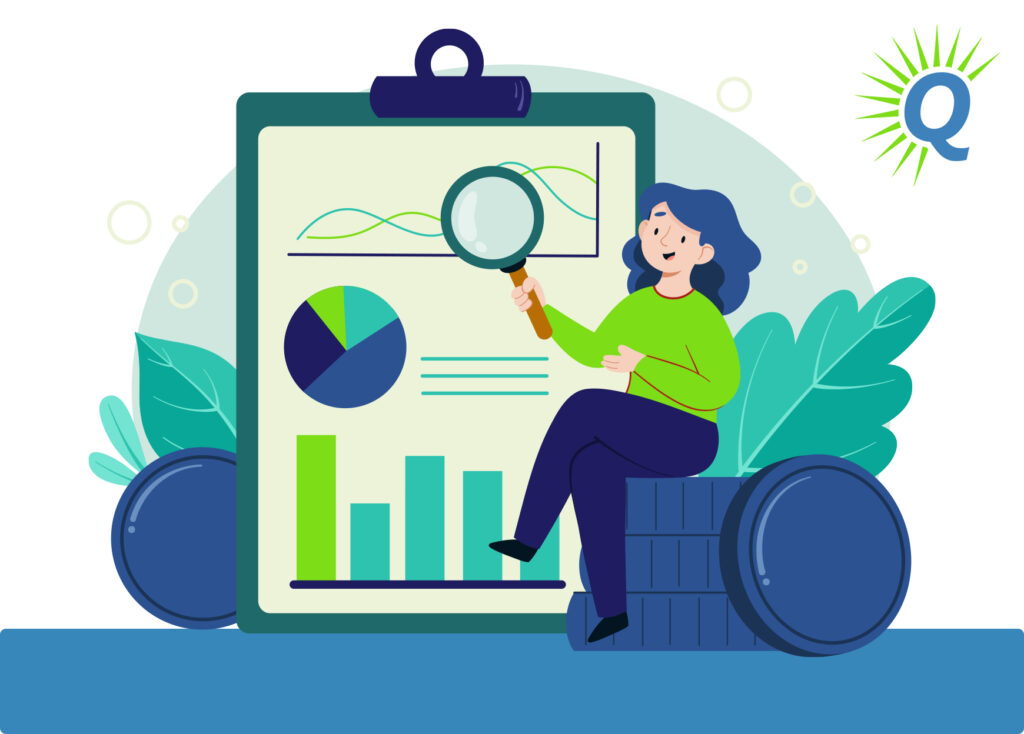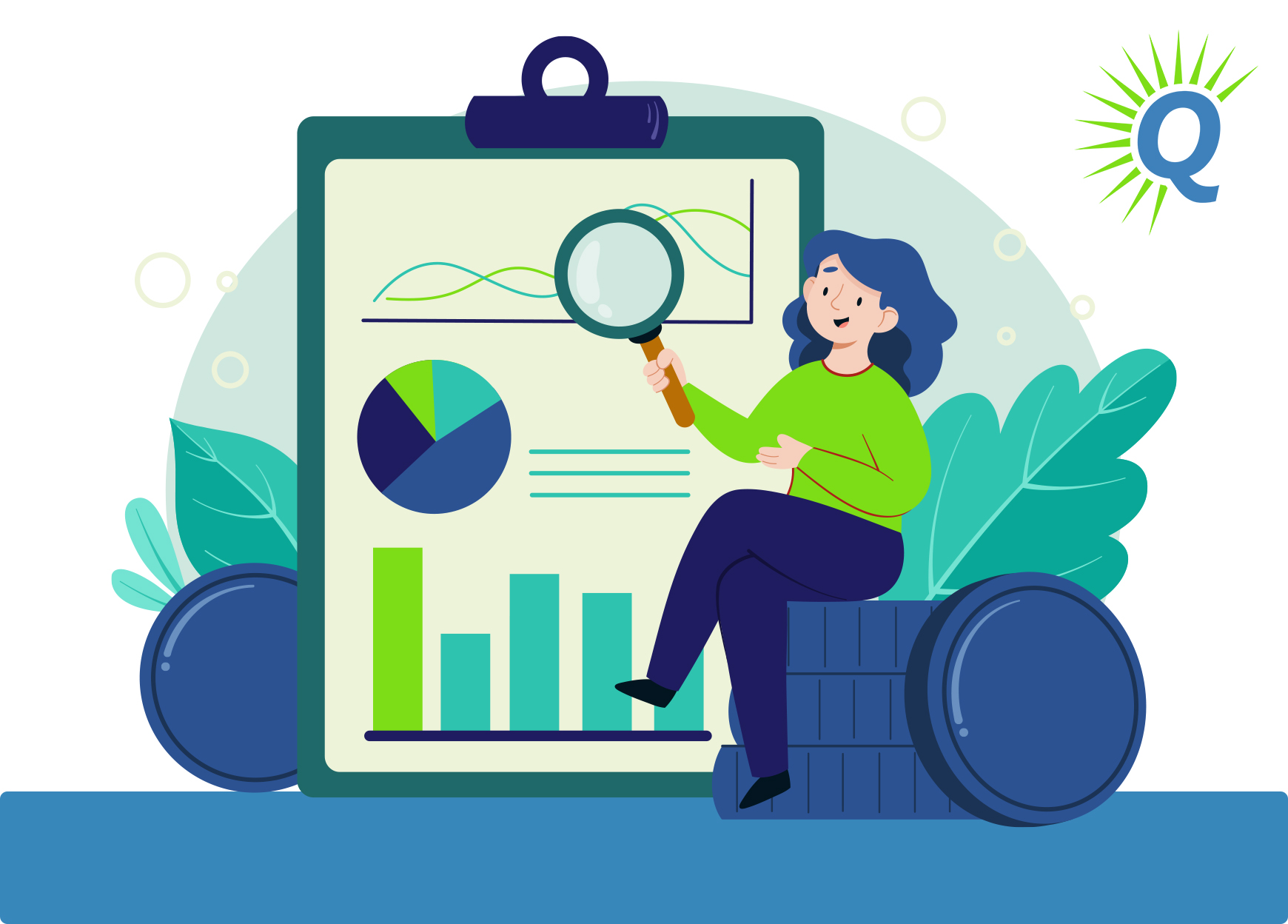Topics:
Never Miss a Beat - Get Updates Direct to Your Inbox
FILTER:


What Info Do You Need for an Accurate Business Valuation?
By Quiet Light
Obtaining a detailed and accurate business valuation is an essential step when preparing to sell your business. Not only does a valuation give you a clear idea of your business’s financial value, but it also helps you understand its strengths, weaknesses, and opportunities. This is important for any owner interested in maximizing value before going to market.
Before getting a valuation, it’s best to get organized with all the key information you’ll need during the process.
In this article, we discuss:
- How to calculate business value with the SDE multiple method
- What information you need for a valuation.
- The difference between accrual vs cash-based accounting in business valuation
- Why you should prepare your documentation before getting a business valuation
Related Article: Advantages & Limits of Business Valuation Calculators


Calculating Business Value with the SDE Multiple Method
Before we get into the information you’ll need in your valuation, let’s look at how valuations work.
“You’ll want to start the valuation process by organizing information about your business.”
SDE Multiple Method
The most common method for valuing online businesses is the SDE multiple method. Here’s how this method works:
You multiply the seller’s discretionary earnings (SDE) by a number called the multiple.


In other words, business value = SDE x the multiple.
Larger SaaS businesses are a little different. Large SaaS companies that meet certain criteria use a revenue multiple method.
Understanding SDE
The next important question to answer is “what is SDE”? Essentially, SDE is the income available to the business owner before before accounting for certain discretionary expenses or revenue that won’t necessarily transfer to a new owner. It provides an estimate of the true money-generating capacity of a business. For this reason, SDE does a better job than income when it comes to comparing two or more businesses to each other.
To calculate SDE, start with income and add back all allowable discretionary expenses. This includes:
- Interest
- Taxes
- Depreciation
- Amortization
- Noncash expenses
- One-time investments
- Owner’s benefit or salary
- Unrelated income or expenses
SDE usually isn’t included in ordinary financial statements.
This means you have to calculate it from your company’s financial documents. Still, it’s important to get your SDE calculations right for an accurate valuation. Any small miscalculations can add up, leading to large errors.


For this reason, many business owners work with a qualified Advisor.
“It’s important to get your SDE calculations right for an accurate valuation. Any small miscalculations can add up, leading to large errors.”
Outsmart the startup game and check out our listings. You can request a summary on any business without any further obligation.Buy a Profitable Online Business
The multiple
The SDE does a great job of describing the measurable financial metrics of your company. Yet, it doesn’t take into account less tangible (but still relevant) factors.
This is where a number called “the multiple” comes in. The multiple captures intangible and tangible parts of your company that drive value. These may include:
- The relative risk of your business compared to other businesses
- Intellectual property
- Legal documentation
- Operational considerations
- Past, current, and prospective growth trends
- Market and economic factors
- Business process automation
- The transferability of your company
You’ll need lot of information to figure out every factor in your company’s multiple. A qualified business Advisor has the expertise to create an accurate multiple estimate.


Key Information Required for a Valuation
Figuring out what information you need for your business valuation can be tough. But you can think about it as: “What info is necessary to determine SDE and the multiple?”
In practice, this involves a lot of financial and nonfinancial data, including:
- Profit and loss or income statements
- Balance sheet
- Tax returns
- Forecasts and projections
- Market and economic data
- List of assets, inventory, and liabilities
- Nonfinancial information


Profit and loss or income statement
Your income statements (or profit and loss statements) are the most obvious requirements. These documents are crucial for calculating both SDE and the multiple.
Business value depends on past, current, and expected future performance of your business. As a result, it’s important to provide income statements for at least the previous 4–5 years.
Also, be sure to have your interim income statement for the current year.
Together, this information helps show your business’s current performance and past growth trends. Both are important for an accurate valuation.
“It’s important to provide income statements for at least the previous 4–5 years.”


Balance sheet
Your balance sheet provides key information about your company’s assets, liabilities, and equity. You should prepare to provide the previous 4–5 years of company balance sheets. Also, have your interim balance sheet ready to highlight the current year.
Tax returns
Your company’s tax returns may also be necessary for calculating SDE and multiple. Be sure to organize the last 4–5 years of tax returns ahead of time so they’re ready to go when needed.
You may also need to provide the owner’s personal tax returns, based on the business structure. Speak with your accountant to determine if this is the case for your business.


Forecasts and projections
The expected future performance of your company affects its value a lot. This means your forecasts and projections may be relevant for your business valuation.
Forecasts and projections may include information about:
- Expected future income
- Expected future expenses
- New product launches
- Business operation improvements
“Your forecasts and projections may be relevant for your business valuation.”


Market and economic data
Your business valuation also depends on external market and economic factors. The trends of your industry and niche can have a big impact on how your company is expected to perform in the future.
For example, if your business is in a niche with strong expected growth, it would help your valuation. But if your company is in an industry that is in sharp decline, your valuation may suffer.
Also, the state of the economy has an effect. Economic recession tends to decrease business value, while an upswing increases it.


Nonfinancial information
Financial data isn’t the only relevant information for calculating business value. Your business Advisor will need to examine other documentation for an accurate valuation.
Relevant nonfinancial information may include:
- Legal documents
- Standard operating procedures
- Supplier and third-party-relationship documentation
- Knowledge of management and personnel
- Operational knowledge
This information is helpful for assessing the intangible parts of your business’s value. Clear standard operating procedures and orderly legal documentation add value to your business. A similar company without those processes will have less value in comparison.
Accrual vs Cash-Based Accounting in Valuations
There are two main methods of business accounting: cash based and accrual. With cash-based accounting, you record expenses and revenue as they’re spent and received. With accrual accounting, these expenses or revenues are recorded as they are incurred.
When it comes to business valuations, accrual accounting is preferable.


Let’s assume you place an order for inventory for your ecommerce business. With cash-based accounting, this expense is recorded all at once at the time you place the order. If you’re using accrual accounting, you record expenses as you sell inventory units.
There are several benefits to accrual accounting, like:
- More accurate forecasting
- Better budgeting
- More strategic reporting
- A better SDE multiple
By improving your SDE, accrual accounting can improve your business’s valuation. As you know, a significant part of the money you receive for your business comes at the time you sell it. As a result, it pays to do everything you can to maximize your value before the sale.
“By improving your SDE, accrual accounting can improve your business’s valuation.”


Why You Should Prepare Your Documentation ahead of Time
Most business valuations need the analysis and compilation of a lot of information. Pre-preparing relevant information can streamline the process for you and your Advisor.
An experienced accountant can help you organize your financial statements using accrual accounting. They can help you achieve an easier valuation and help you run a more successful business.
At the same time, you may want to hire a lawyer to help you make sure your legal documentation is in order.
Understanding the information required for a business valuation can help you prepare. This helps to create a more streamlined and successful valuation process.
Get a free, individually-tailored valuation and business-readiness assessment. Sell when you're ready. Not a minute before.Thinking of Selling Your Business?





